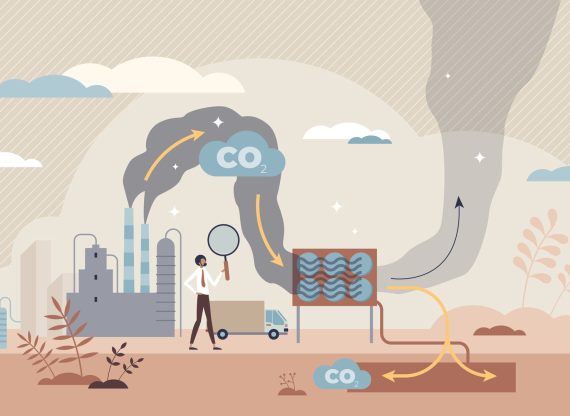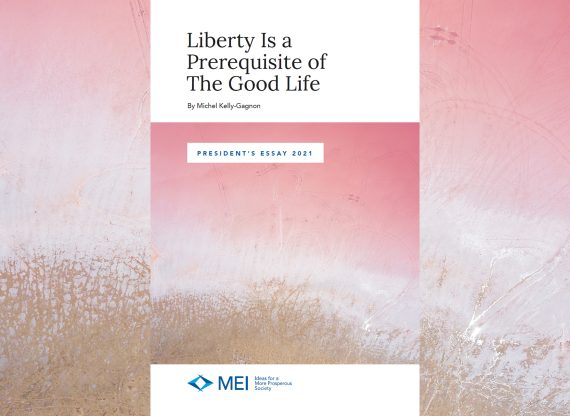
6-minute read
Carbon Capture, Utilization, and Storage: Concrete Market-Based Recommendations to Reduce GHG Emissions
With the 2021 United Nations Climate Change Conference (COP26) set to begin in a few short days, governments are expected to double down on GHG emission reduction targets. A recent MEI publication described how carbon capture, utilization, and storage (CCUS) technologies can allow governments to reach their targets without compromising our standard of living. This follow-up publication offers tangible solutions to encourage uptake of this new technology by entrepreneurs.

5-minute read
Carbon Capture, Utilization, and Storage: An Entrepreneurial Approach to Reducing GHG Emissions
With GHG emission reduction targets getting ever more ambitious, and the pressing need for concrete results, the technological tools at our disposal keep improving. This publication looks at CO2 capture, utilization, and storage/sequestration (CCUS) technologies, which are playing a bigger and bigger role and could allow us to reach our targets without compromising our standard of living.

7-minute read
How Can Quebec Become a Leader in Distance Learning?
The health measures adopted since the spring of 2020 have forced students to rediscover the pleasures of distance learning. Now that the necessary technological infrastructure is in place, is it feasible for Quebec universities to try to attract a larger international clientele? This publication examines how our universities could seize this new opportunity.

6-minute read
Let the Police Police, and Let Entrepreneurs Handle the Rest
For a few years now, crime rates have been rising in Canada. At the same time, our police forces are facing mounting financial pressures. This research paper proposes a new way of seeing the division of labour for police that could generate substantial savings all while improving the quality of services delivered to the public.

16-minute read
Environmental Policies Should Be Adapted for Rural Canadians
For many years, governments have been piling measure upon measure to reduce greenhouse gas emissions, all in an effort to fight climate change. This Economic Note published by the MEI analyzes the extent to which these public policies have a disproportionate impact on the country’s rural regions.

6-minute read
Wealth Tax: A Predictable Failure
With federal elections reportedly around the corner, Canadian politicians will be putting forward policy proposals that they deem popular with the public. Left-leaning politicians have been promoting the idea of a one-time wealth tax in order to fund spending sprees. This publication takes a hard look at the one-time wealth tax recently analyzed by the Parliamentary Budget Officer.

1-minute read
Liberty Is a Prerequisite of The Good Life
If we want to sell people on our ideas, we must sell them on classical liberalism as a philosophical tradition that rests on some genuinely valuable ethical foundations, and not just on a narrow or caricatured vision of economic growth. Hence the impetus of this essay.

11-minute read
Shortening Approval Delays for New Drugs: A Safe, Straightforward Prescription
The COVID-19 pandemic has shown us once again the importance of quickly developing and approving the use of innovative drugs. This publication has two recommendations to help ensure that Canadians have quicker access to medications.

2-minute read
E-Book – Life After COVID: What’s Next for Canada?
The Montreal Economic Institute is one of five organizations calling for a timely examination of our collective finances, health care systems, options for economic growth, and more in the free e-book entitled “Life After COVID: What’s next for Canada?”

9-minute read
Linguistic Vitality by Other Means
With the different levels of government intensifying their efforts to promote the use of the French language, an analysis of the economic history of Quebec identifies the real winning conditions for favouring the vitality of French. This publication shows the strong connection between the prosperity of francophones and the attractiveness of French in the province.

